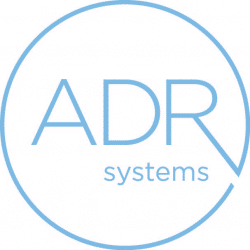For a mediation to be successful, attorneys need to carefully manage their clients’ expectations of the process well before the day of mediation and understand what a client needs to know before mediation. Mediation is a popular alternative to expensive, drawn-out litigation. Yet, many people still do not understand how the process works. A client may wrongly believe that the neutral is there to advocate for them or that they will get everything they want because they control the process.
These misconceptions of mediation can stymie the neutral’s efforts to facilitate negotiations between parties. Attorneys can do a great deal to correct these misconceptions and ready their clients by providing an accurate picture of what will happen during their mediation.
Explain the Neutral’s Role Before the Session
The neutral is key to the mediation process, so understanding the neutral’s role is invaluable to engaging in that process.
Attorneys should emphasize that neutrals — often seasoned attorneys and retired judges — are there to facilitate negotiations between parties. As such, they are impartial, favoring neither side, seeking to bring parties to a settlement that is acceptable for all involved.
Parties have mistaken the neutral as a second advocate or a decision-maker on their case. The neutral does not advocate for either side. Mediation is not adjudicatory (unless parties agree to a binding mediation) and the mediator has no power to render a decision on their case. These misunderstandings can complicate the mediation proceedings if an attorney must clarify the neutral’s role on the day of mediation.
Allow the Client to Tell Their Story
While attorneys must emphasize to their client that the neutral is an impartial intermediary, they should not discourage their clients from speaking candidly with the mediator.
“I think it is a cleansing experience for the client to tell their story to a neutral,” said Hon. Thomas R. Allen, (Ret), senior mediator and arbitrator at ADR Systems. “What they say is inadmissible in a courtroom and having the opportunity to tell their story – to even vent – can be cathartic.”
Frank, informal conversations between a neutral and the parties opens a window to personalities and interests, which can help the neutrals “bend and stretch” parties on either side as the mediation progresses, Judge Allen noted.
Educate Your Client About Their Case
Clients may expect more (or less) from mediation because they do not understand the deeper legal issues involved in their case, among other things.
While an attorney does not need to go into great detail, their client should understand the strengths and weaknesses of their case. The attorney often asks for client feedback on their submission for the neutral. This can start the learning process and open organic attorney-client dialogue prior to the mediation.
“An uninformed client can obstruct the process with unreasonable demands and hold-outs, undermining the entire purpose of the mediation: coming together to work through differences and arrive at a settlement agreement,” said Hon. Brigid M. McGrath, (Ret.), senior mediator and arbitrator at ADR Systems.
Emphasize that Mediation is a Process
Parties are understandably attracted to mediation because it offers an efficient means to resolution, but they may misconstrue efficient with immediate.
“Patience is key to a successful mediation – and especially patience amid frustration,” said Hon. Ronald D. Sutter, (Ret.), senior mediator and arbitrator at ADR Systems. “Mediations are more than the four or eight-hour session when the parties meet with a neutral. The process includes the agreement to mediate, the preparation of the submission and the pre-mediation contact with the neutral – counsel do all these things before the mediation date itself.”
Although mediation takes much less time and costs much less than litigation, there is preparation involved. Providing their clients with a clear understanding of the entire process and timeline will ameliorate frustrations and calm nerves.
Prepare Your Client to Negotiate
Although it is far less austere and structured than litigation, mediation is not a short-cut to receiving what a client wants. It involves the give and take of negotiation.
Clients are typically quite clear with their attorneys regarding what they ‘want’ as the result of mediation; however, attorneys should explore the deeper ‘interests’ of their clients prior to the day of mediation. Interests are the fuel that drives the negotiation process.
“Attorneys must impress upon their clients that what they ideally want from a settlement may not be what they get,” said Hon. Larry G. Axelrood, (Ret.), senior mediator and arbitrator at ADR Systems. “They should counsel them to be prepared to move out of their comfort zones to reach a reasonable outcome. If they can’t make that clear to their client, the neutral may need to assist in resetting that expectation.”
By clarifying clients’ expectations of mediation, attorneys can help them smooth out the mediation to come.
………………
Hon. Thomas R. Allen, (Ret.) has more than 40 years of legal experience. He served most of his judicial career in the Circuit Court of Cook County’s Chancery Division where he settled many commercial and business-related cases. He also served in Probate and has experience with estates and trust matters. Judge Allen brings a tremendous depth of experience to his practice having worked as a litigator for 30 years before becoming a jurist. As a senior mediator and arbitrator, he stands out as an exceptionally intelligent, hardworking and even-tempered neutral.
Request Judge Allen’s Availability
Hon. Ronald D. Sutter, (Ret.) has served the legal community as an attorney, prosecutor and jurist for more than 38 years. As a litigator, he focused his practice in personal injury and insurance matters. Judge Sutter spent 15 years in the DuPage County Circuit Court and was the Presiding Judge of the Law Division. A popular mediator and arbitrator, he is praised for his integrity, legal ability and temperament.
Request Judge Sutter’s Availability
Hon. Brigid M. McGrath, (Ret.) has handled and complex commercial and personal injury case types throughout her 34-year legal and judicial career, including professional malpractice, medical malpractice, insurance coverage and product liability matters. As a senior mediator and arbitrator, she is skilled at diffusing conflict and identifying root causes of disputes. Counsel know Judge McGrath will prepare thoroughly for every case and work diligently toward resolution.
Request Judge McGrath’s Availability
Hon. Larry G. Axelrood, (Ret.) has extensive experience with medical malpractice, nursing home, railroad, legal malpractice, premises liability, construction and personal injury matters. Having served on the Evanston Police Pension Board and the Illinois Judges Association Pension and Benefits Committee, Judge Axelrood also has in-depth experience with pensions and their impact on various types of cases. He is known for his ability to easily connect with and understand the interests of all parties.
View Judge Axelrood’s Full Bio.
Request Judge Axelrood’s Availability.
ADR Systems, It’s Settled.®





